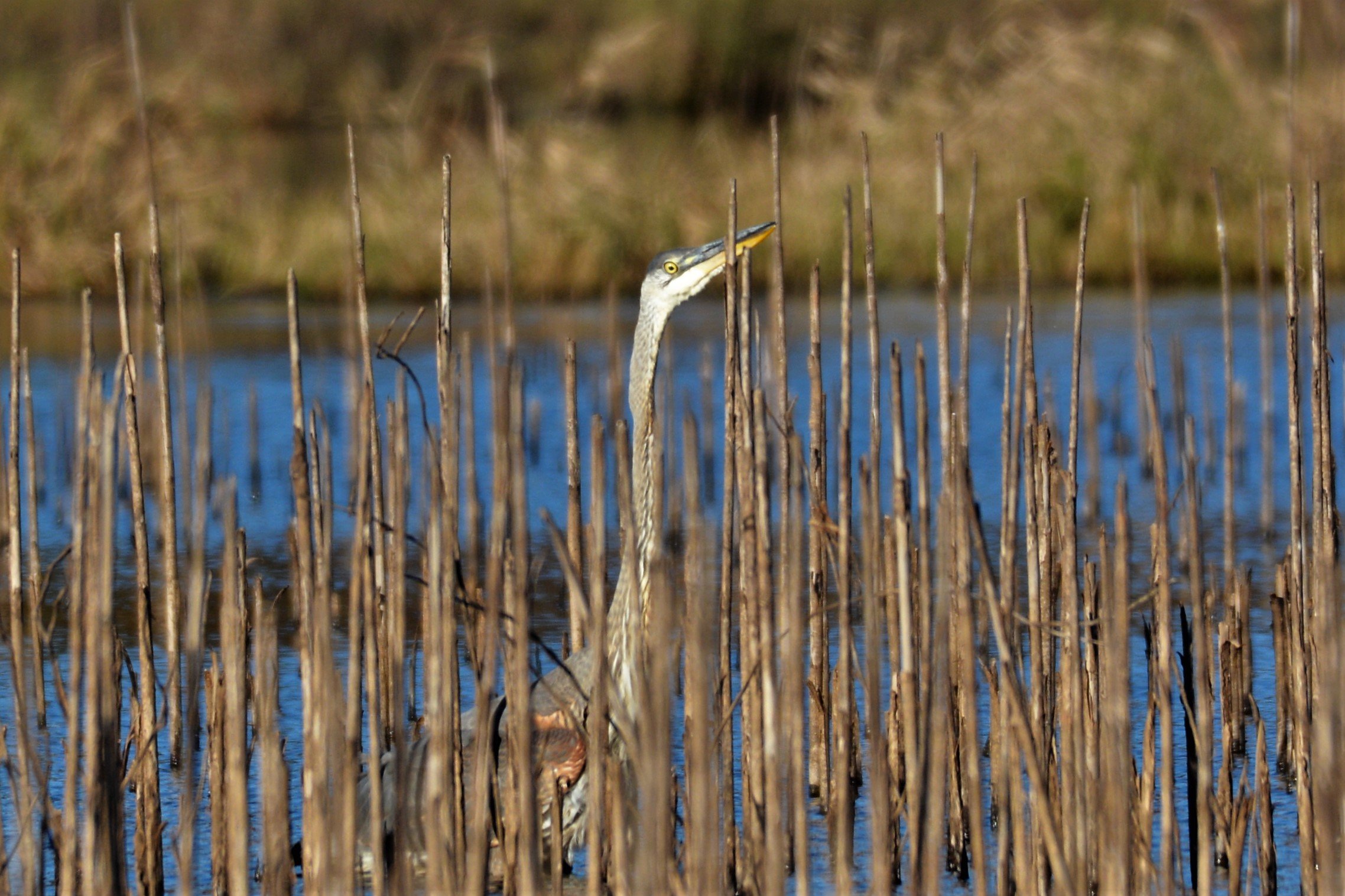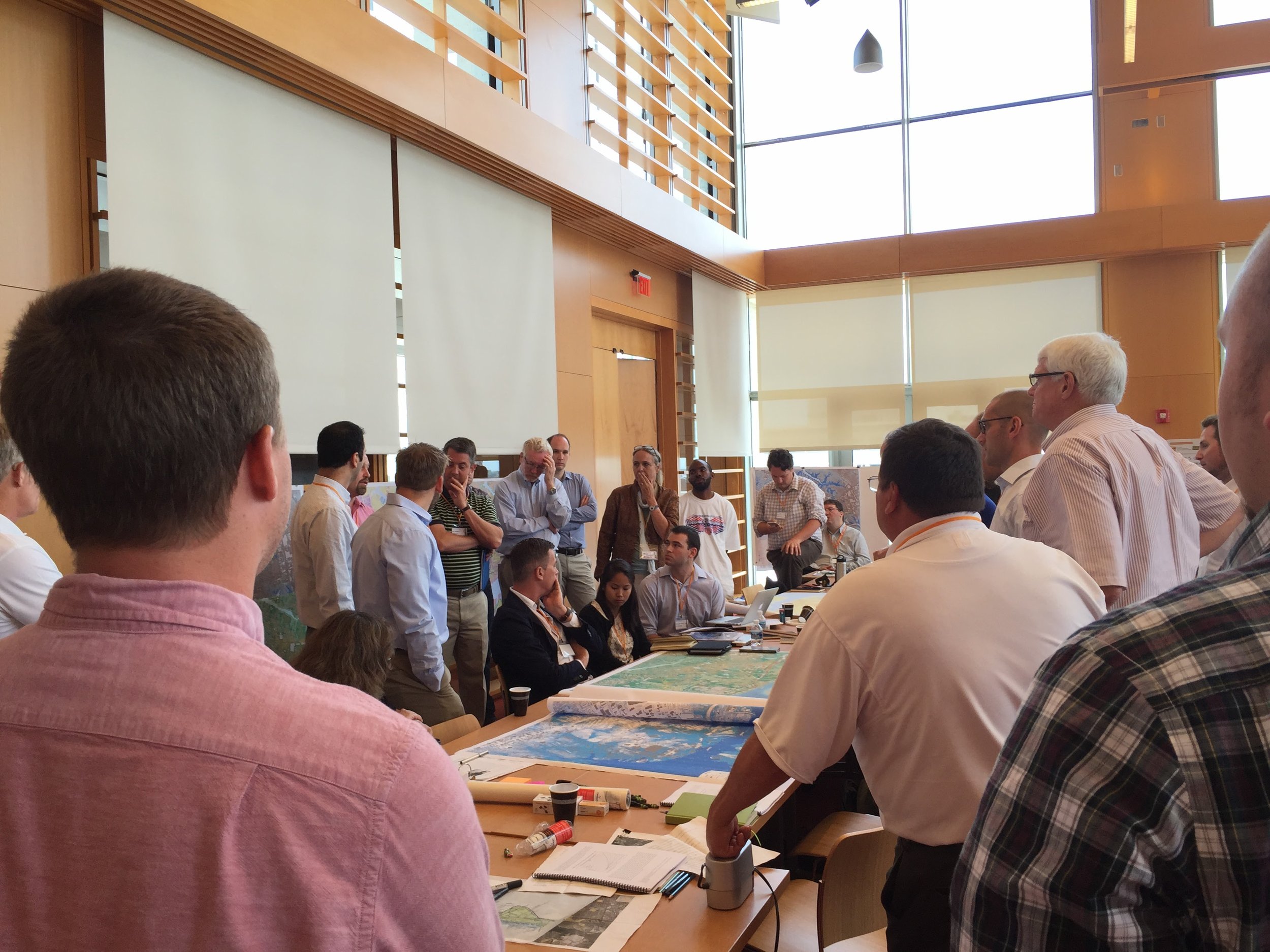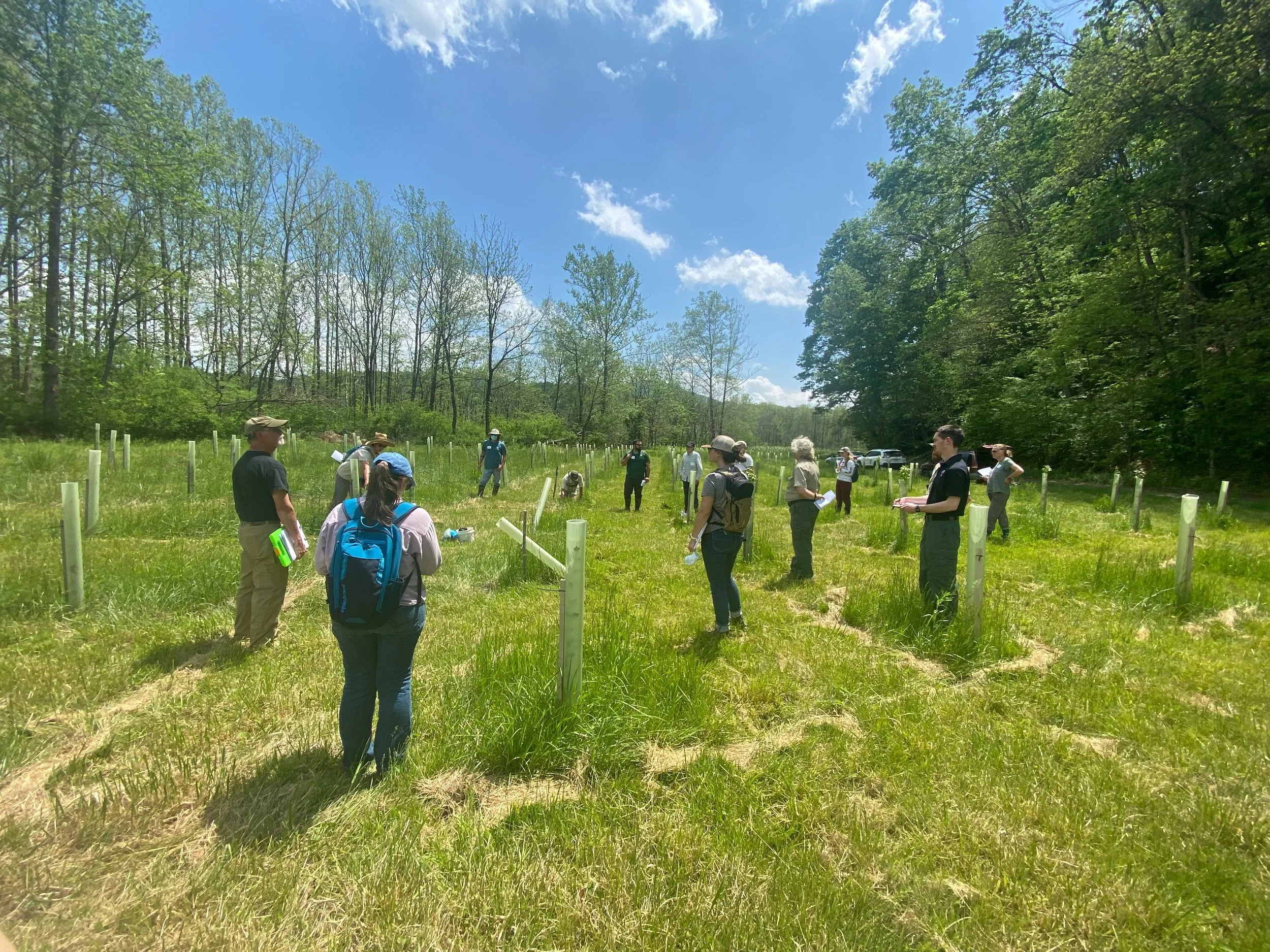
Adapt
Conserve
Flourish
Photo Credit: Cornell Lab of Ornithology | Macaulay Library
Mission
Wetlands Watch is a 501(c)3 nonprofit based in Norfolk, Virginia. Our mission is to enhance natural resilience, bolster community adaptation efforts, and protect and restore wetlands throughout Virginia. We advance climate adaptation by working collaboratively with a wide variety of stakeholders, and by implementing solution-focused strategies that unify and connect.
Initiatives
Wetlands & Public Policy Initiative
Wetlands Watch seeks to protect and restore Virginia's wetlands through multi-tiered advocacy efforts at the local, state, regional, and federal levels.
At the local level, we partner with a host of local nonprofits. (Please see our Partners page for a full list of our partners.) Our local work includes rigorous reviews of permit applications to prevent the development of wetlands. We help communities monetize wetlands and shoreline buffer protections through flood insurance discounts through the Community Rating System.
At the state level, we are active in both legislative and administrative work. We play a pivotal role in helping safeguard (and improve) Virginia’s shoreline regulations and develop critical legislation to protect wetlands and shoreline buffers.
We contributed to innovative revisions in Virginia’s Chesapeake Bay Preservation Act and the Tidal Wetlands Act, bring sea level rise adaptation front and center. We advance state climate change planning through our leadership position on Virginia’s Coastal Resilience Master Plan Technical Advisory Committee.
At the federal level, Wetlands Watch advocates for progressive adaptation policies, offering expert testimony to Congress on issues such as the expansion of the Coastal Barrier Resources System and the national security implications of climate change.
Communities Initiative
Wetlands Watch seeks to enhance the health and safety of Virginia's communities, particularly those with limited capacity, by offering essential guidance and technical support to local staff for floodplain management and adaptive planning.
As the chair of the Virginia Community Rating System (CRS) Workgroup, we provide expert technical assistance to localities implementing flood risk reduction measures that simultaneously lower flood insurance premiums for property owners. This group facilitates peer-to-peer exchanges across Virginia's diverse regions, promoting the adoption of innovative floodplain management and adaptive planning practices throughout the state.
Through our outreach and technical advisory for the statewide Community Flood Preparedness Fund, we are building, we are building a comprehensive flood resilience network across Virginia, ensuring that all Virginia communities have access to the necessary funding and resources for effective flood risk reduction and conservation strategies. Finally, we are the authors and stewards of the award winning Virginia Sea Level Rise Adaptation Guide, a key resource for communities addressing climate change impacts. The next edition will expand this resource state-wide.
Neighborhoods Initiative
Through the Collaboratory, students from disciplines such as architecture, engineering, and environmental science collaborate with local clients or local residents to develop neighborhood-scale resilience plans and strategies aimed at reducing flood risk and addressing other climate-related challenges. These partnerships provide invaluable hands-on experience for students, while communities benefit from practical, nature-based solutions that are tailored to their specific needs and priorities.
Since its launch in 2014, the Collaboratory has played an impactful role in driving climate resilience efforts throughout coastal Virginia. What began as a pilot project in Norfolk’s Chesterfield Heights has grown into a regional initiative that engages students, local governments, private firms, and residents in creating innovative designs to mitigate the impacts of sea-level rise and recurrent flooding.
Wetlands Watch’s Neighborhoods Initiative is dedicated to advancing environmental justice for underserved and disenfranchised communities across Virginia. Our mission is to work alongside these neighborhoods in ways that honor their unique histories, respect their cultural identities, and support their aspirations for the future. We believe that community-led solutions are the key to creating resilient, vibrant neighborhoods that can withstand the challenges posed by climate change.
Central to this initiative is our Resilient Design and Research Collaborative Laboratory, or “Collaboratory,” which fosters dynamic partnerships between community groups and Virginia’s leading academic institutions.
Living Infrastructure Initiative
Wetlands Watch works to bolster Virginia’s natural resilience by providing essential support, training, and strategic guidance for living (green) infrastructure specialists and practitioners. We believe that living Infrastructure, when properly implemented and adaptively managed, allows people and nature to thrive while providing the co-benefits of improving water quality, mitigating flooding, and protecting biodiversity.
Our programs address the barriers to acceptance and function of living infrastructure practices within the landscape and along our waterways.
We provide workforce and professional development as partners and Virginia Coordinators of the Chesapeake Bay Landscape Professional (CBLP) program. We fund implementation and management as grant managers of the Community Resilience and Tree Fund (CRTF). We lend our expertise as steering committee members and action team leads for various living infrastructure collaboratives, and inform planning and policy through focused programs like the Shoreline Resilience Program or the Community Rating System (CRS).
Catch the King
Catch the King is the world's largest annual community science initiative focused on mapping tidal flooding, and it is occurring in Virginia and North Carolina. Held during the year’s highest astronomical tide, known as the "King Tide," this event mobilizes hundreds of volunteers to document the extent of tidal flooding across the region. Catch the King (2017) set a Guinness World Record for the largest environmental survey conducted by volunteers, with 722 participants logging over 59,000 data points. Armed with a GPS-based smartphone app, volunteers record the high-water mark in real-time, providing invaluable data that helps local governments and researchers understand and predict the impacts of sea-level rise on our communities.
This hands-on event not only contributes to scientific research, but also serves as a powerful educational tool, raising public awareness about the increasing risks of coastal flooding.
By participating in Catch the King, community members play a direct role in shaping the future of flood resilience in Virginia. The data collected is used to improve flood models at VIMS, improve water quality collection at ODU, guide local planning and mitigation efforts, and protect vulnerable neighborhoods from future flooding.
Join us in this unique opportunity to contribute to science and make a tangible difference in your community. Catch the King is more than just an event; it is a movement that empowers citizens to take an active role in safeguarding our coastlines and building a resilient future for all.
Catch the King planning is happening and the interest survey for 2025 is open now! Click the link below for more information on the event and how to get involved.
Support Us!
Your generosity plays an integral role in everything we do here.
Your support literally, and figuratively, keeps the lights on.

Sign up for our General Newsletter—and All of Our Newsletters— Below!
Our Partners
We are deeply grateful for our incredible partners who inspire and teach us constantly. Together, we’re tackling the fundamental challenge of our time—building resilience and protecting our environment. By collaborating across so many sectors and communities, we’re creating innovative and impactful solutions that shape a more sustainable future. It’s an honor to work alongside you in this vital mission!
Can’t Find Something?
Wetlands Watch is in the process of migrating content from its old site to this one. If you are having trouble locating something, you can
Use the search function for this site.
Access the old site. Remember that there’s a search box at the top of the old site
Contact Eric, and he’ll find it for you.









